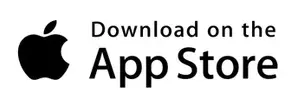Despite discounting in China, iPhones lost share in May, US weak: UBS.
Despite heavy discounting during China’s “618” shopping festival, UBS analysts warned that Apple (NASDAQ: AAPL) iPhone sales continue to struggle.
“iPhone ‘sell-through’ remained soft, declining 2% YoY (Source: Counterpoint),” the bank’s note reads, marking the fifth consecutive month of year-over-year decline.
The weakness wasn’t limited to China. “The US was weak despite an easy comp,” UBS highlights. US sales reportedly fell a significant 16% year-over-year. Europe offered a rare bright spot, experiencing a “mini-upgrade cycle” after a long period of decline.
UBS emphasizes that discounting in China wasn’t enough to stop Apple from losing market share. “We estimate iPhone sell-through in China was largely flat YoY during May-24 in a market that grew 11% YoY,” the analyst’s report. This translates to a decline in iPhone share in China, falling from 16.9% to 15.3%.
UBS argues that “iPhone share loss to Huawei and other Chinese OEMs acts as a material governor on iPhone unit growth.” Huawei has seen a significant comeback, capturing 15.6% market share in China year-to-date, up from 10.1% the same period last year. This comes after a period where US sanctions hampered Huawei’s ability to compete.
Looking beyond China, the weakness seems widespread. UBS breaks down iPhone unit performance, noting that in China, iPhone units were up 90 bps YoY vs a market up ~11% as iPhone lost share.
Meanwhile, in the US, iPhone units were down over 16% YoY vs a market down ~10% as the iPhone lost share. In Europe, iPhone units were up 19.5% YoY vs a market up 21% as the iPhone lost a modest share, while in India, iPhone units were down ~7% YoY compared to the market being down ~7% as the iPhone share was unchanged.
Spirit shares rise as Boeing agrees to buy supplier for $4.7 bln in all stock deal.
Investing.com– Boeing Co (NYSE:BA) has reached an agreement to reacquire Spirit AeroSystems Holdings Inc (NYSE: SPR) for over $4 billion, ending months of speculation over the deal as the plane maker struggled with a new safety crisis, the two companies said on Monday.
Boeing will pay $37.25 for each share in Spirit in an all-stock deal, Spirit said in a press release, valuing the aircraft parts maker at $4.7 billion. Including debt, the deal will come up to a total transaction value of $8.3 billion.
“Bringing Spirit and Boeing together will enable greater integration of both companies’ manufacturing and engineering capabilities, including safety and quality systems,” Spirit CEO Patrick M. Shanahan said.
Spirit shares rose more than 5% in premarket trading Monday, while Boeing fell 1.3%.
The deal will see the break-up of Spirit, with some of its assets going to French plane maker Airbus Group SE (EPA: AIR), over antitrust concerns. Spirit said it will divest operations in Malaysia, Scotland, and Northern Ireland as part of the deal.
“We would expect it will take 6-12 months for the deal to close,” Barclays analysts commented on the news.
“We ultimately expect having SPR under its control to be beneficial to BA’s ability to ramp higher, although it could weigh over the near term given the resources that will need to be diverted to improve SPR’s Wichita manufacturing. Increased vertical integration with SPR will ultimately make BA more cyclical and more capital-intensive,” they added.
Meanwhile, Bank of America analysts said that while the latest news removes some uncertainty, concerns remain regarding the deal’s regulatory clearance.
Sanofi eyes investment of up to $1.6 billion in Germany.
FRANKFURT (Reuters) – French drugmaker Sanofi (NASDAQ: SNY) is nearing a decision to invest between 1.3 billion euros and 1.5 billion euros ($1.4-$1.6 billion) at a major production site in Frankfurt, Germany, where it makes insulin brand Lantus, newspaper Handelsblatt reported on Monday.
The paper cited German government sources as saying Sanofi changed course after initial considerations to transfer Lantus production to France and the company is now close to committing to an upgrade of the German site in Frankfurt’s Hoechst district.
A government spokesperson said Chancellor Olaf Scholz was “very much looking forward” to further development but it was for the company to provide an update.
Sanofi said it would not comment on specific investment projects.
Among recent wins by Germany’s ruling coalition to attract healthcare investments, Daiichi Sankyo said in February it would spend about 1 billion euros to boost its work on precision cancer drugs near Munich.
U.S. drugmaker Eli Lilly (NYSE: LLY) in November last year pledged to invest 2.3 billion euros to make obesity and diabetes drugs in Germany.
($1 = 0.9299 euros)



